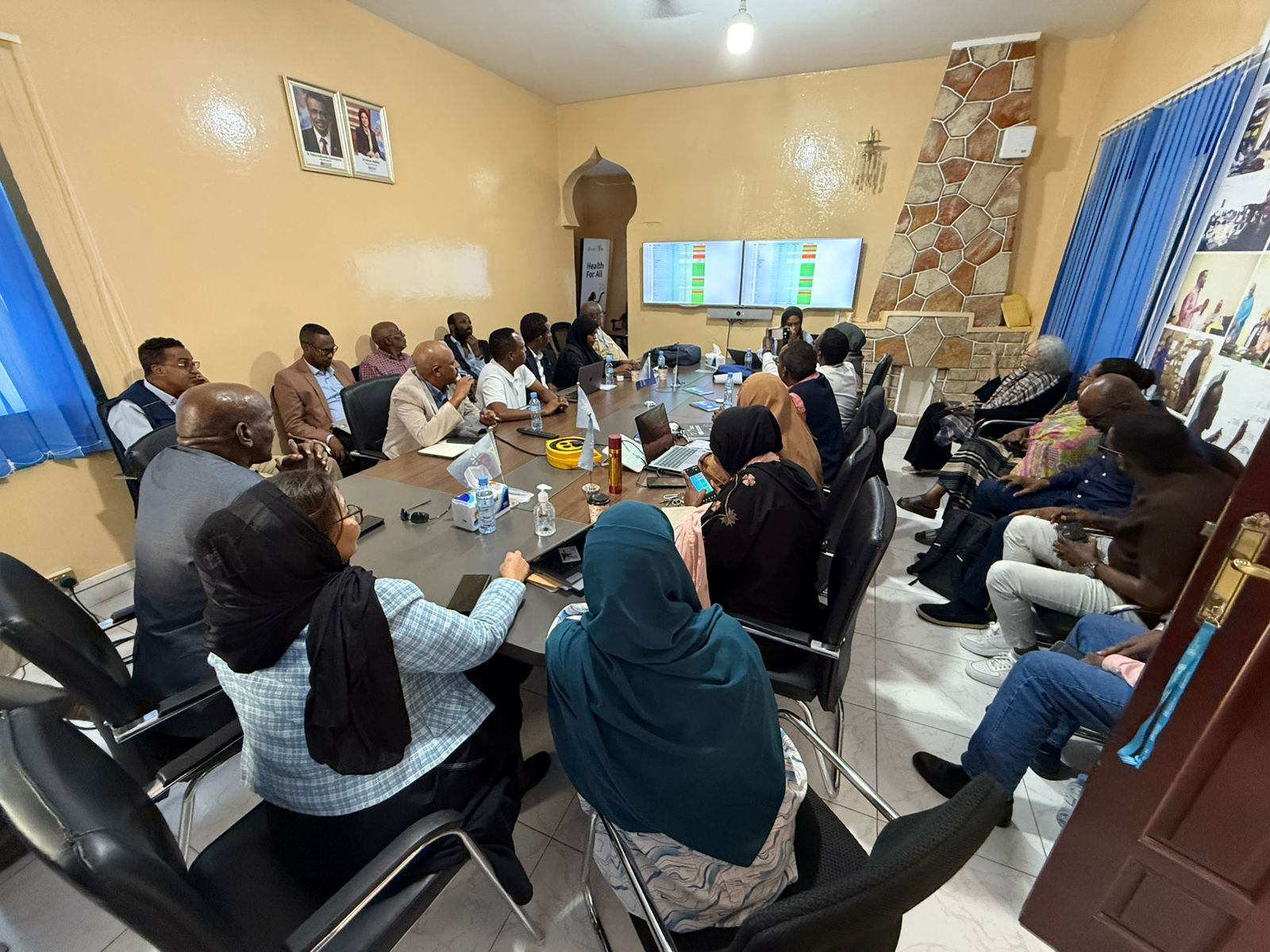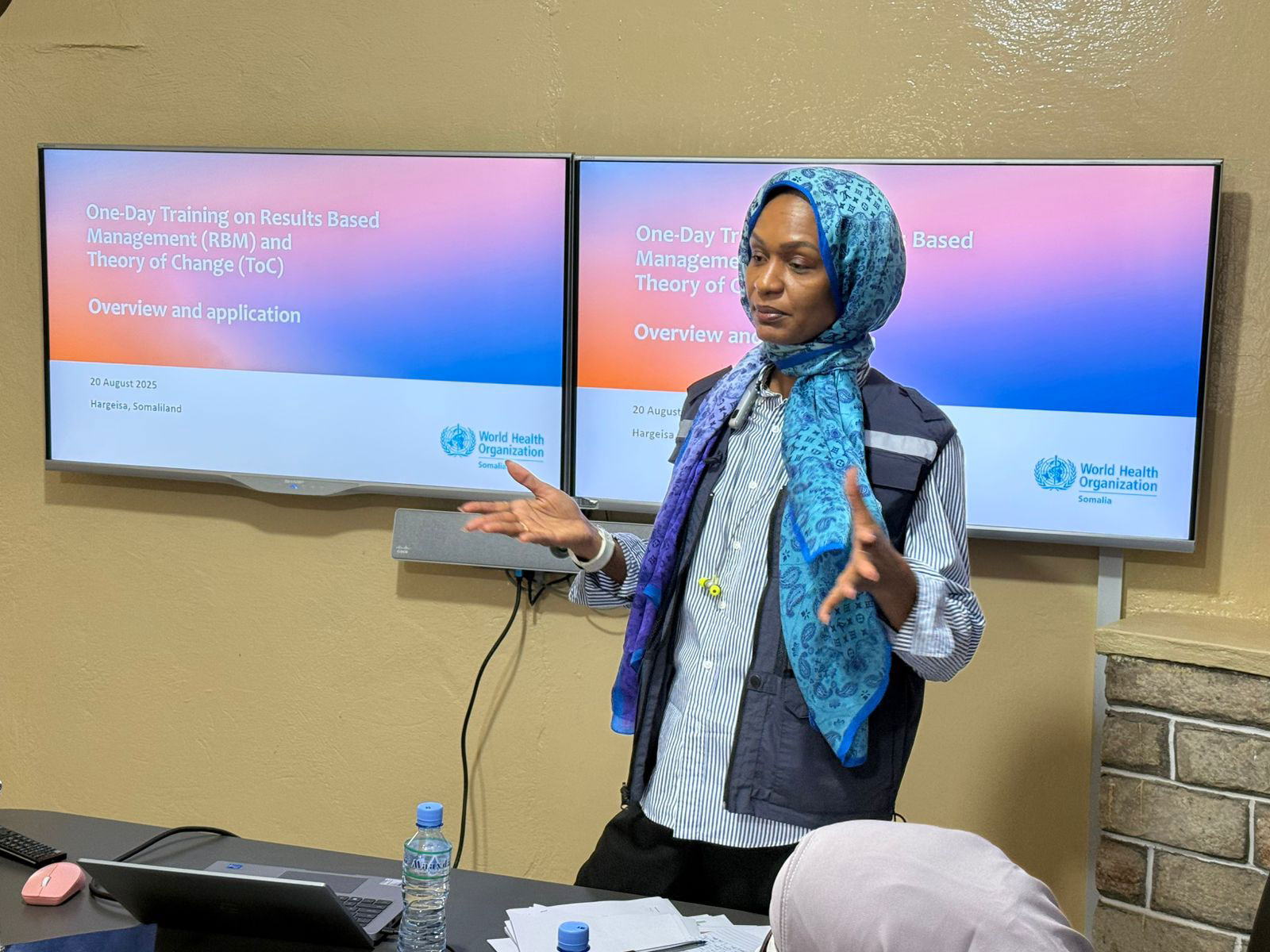 25 August 2025, Mogadishu, Somalia – World Health Organization (WHO) Somalia recently, 20-21 August 2025, completed a lively 2-day professional development training on results-based management (RBM), with a focus on the theory of change (ToC). The sessions aimed to equip technical staff with new skills and tools to plan, monitor, and report on health programmes.
25 August 2025, Mogadishu, Somalia – World Health Organization (WHO) Somalia recently, 20-21 August 2025, completed a lively 2-day professional development training on results-based management (RBM), with a focus on the theory of change (ToC). The sessions aimed to equip technical staff with new skills and tools to plan, monitor, and report on health programmes.
WHO staff from various departments across Somaliland gathered for the training which focused on fostering a unified, results-driven approach and enhancing the Organization’s capacity to develop impactful interventions aligned with national goals and WHO’s regional vision.
Led by the Country Office, the Hargeisa Sub-Office engaged in practical sessions designed to enable teams to improve programme design, strengthen accountability and more effectively highlight WHO Somalia’s role in creating a healthier future.
Comprehensive skill development
On the first day, participants explored RBM and ToC as tools to connect daily work with long-term health outcomes. Through case studies, including on maternal mortality in Djibouti and pneumonia in Somali children, staff practiced building problem trees, solution trees and causal pathways, demonstrating how interventions contribute to measurable impact.
The second day focused on workplan development and management, laying the foundation for a broader training series on award monitoring, reporting and financial accountability. Staff gained hands-on experience developing results-oriented work plans, aligning them with WHO strategic priorities and donor requirements, and applying WHO systems such as GSM.
 “The training is important because it helps our teams connect their daily work to long-term results,” said Programme Management Specialist at WHO Somalia Nazik Elshiekh. “By using the theory of change, we can better articulate how our interventions lead to improved health outcomes, while also enhancing accountability to the people we serve.”
“The training is important because it helps our teams connect their daily work to long-term results,” said Programme Management Specialist at WHO Somalia Nazik Elshiekh. “By using the theory of change, we can better articulate how our interventions lead to improved health outcomes, while also enhancing accountability to the people we serve.”
Workplan development and management is the first of a 3-part training series. The session equipped participants to develop comprehensive, realistic and results-oriented workplans, align workplans with WHO's strategic objectives and donor agreements, apply RBM principles directly to operational planning and use WHO templates and systems, such as GSM, for workplan development.
Participants reported that the training enhanced their capacity to improve accountability, strengthen donor reporting and increase programme impact. Somaliland Polio Eradication Officer Dr Hussein Abdi said the workshop had also served as a reminder of the importance of accelerating essential health work.
Key takeaways from the training included greater confidence in applying RBM and ToC to Somalia’s health programmes, practical experience in linking strategic objectives to operational work plans with SMART indicators and strengthened accountability and donor reporting capacity across departments.
By strengthening staff capacity, WHO Somalia is reinforcing its commitment to results-driven programming, transparency and impact, helping to ensure that every activity contributes to a healthier future for Somalia’s people.
For more information, please contact:
Khadar Hared, Communication Officer, WHO Somalia
Tel: +252619800011
Email: This e-mail address is being protected from spambots. You need JavaScript enabled to view it




